In foodie circles, the most famous Indian restaurant in the world is Bangkok’s Gaggan. It has two Michelin stars (the highest in Thailand), was rated as Asia’s Number One restaurant for four years and this year, it came fourth in the list of the World’s 50 Best Restaurants.
By the time you read this however, Gaggan will be on the verge of closing. Gaggan will serve its last meal on August 24 and then shut down forever. The chef Gaggan Anand and his team will move to a new location in Bangkok and reopen, with a different ownership structure and probably, a slightly different name.
I am sure the new restaurant will see the hottest opening in the world – Gaggan Anand has promised to outdo even his own epic performance – but I am still sad to see Gaggan close. It was the first (and only) Indian restaurant to appear high up on lists of the world’s best restaurants, to attract so much foodie attention and to host such great global chef superstars as Massimo Bottura, Vladimir Myshkin and Dabiz Munoz, who all came to cook with Gaggan.
The truth is that Indian food abroad has never quite got the respect it deserves. Even in London, long a centre of Indian cooking, it has been a hard struggle for Indian chefs to earn the accolades they deserve.
Three London restaurants were influential before their time. In the early 1970s, Shezan, serving good North Indian food (the owners were Pakistanis) became the critic Egon Ronay’s restaurant of the year and drew attention to classic Indian food. The Bombay Brasserie, opened by Camellia Panjabi for the Taj group in 1982, was the first Indian restaurant to attract a chic crowd. The Star of India also won foodie admirers with its innovations.
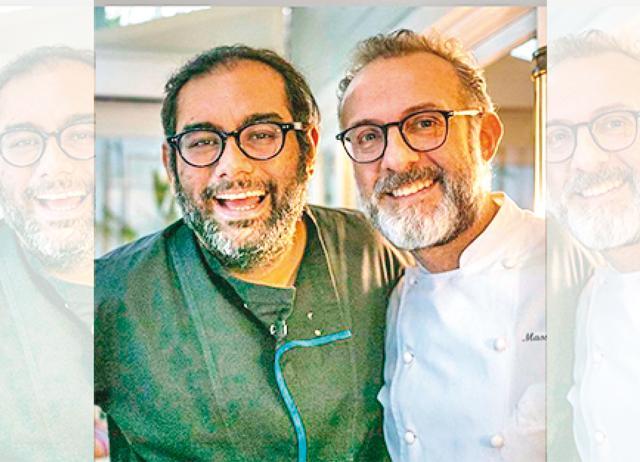
One of The Star of India’s chefs ( he started out as an Oberoi chef), Vineet Bhatia, then left and invented his own extraordinarily influential style of modern Indian food. Bhatia cooked at Zaika, which won the first Michelin star any Indian restaurant had ever got in London and he is – in my book, at least – the inventor of modern Indian food. He is still at it, opening restaurants around the world, while all the dishes he created (the chocolate samosa, kheer ice cream, flavoured khichris as side dishes and even an ice cream made from butter chicken gravy) are widely copied.
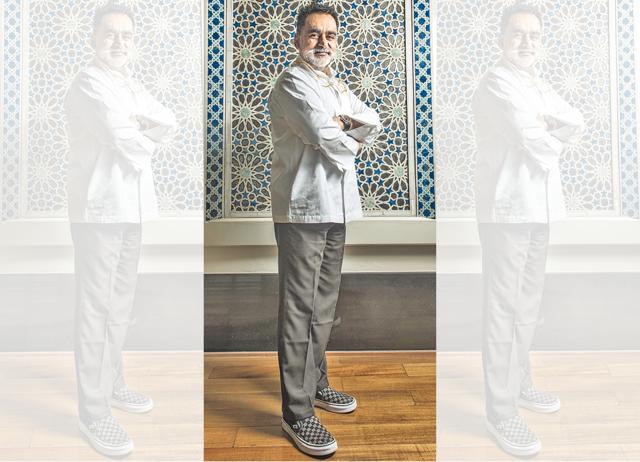
A contemporary of Bhatia’s, Atul Kochhar, got a Michelin star at the same time and quickly won a place for himself in the hearts of well-heeled diners. Atul now has a new, highly regarded London restaurant called Kanishka.
As great as the role of these chefs (and of the great Cyrus Todiwala who shunned the Michelin star route) in promoting Indian food has been, it is two family-run restaurant groups that have done the most for our cuisine in the UK. The first is Masala World, run by Camellia Panjabi (after she left the Taj) and her sister Namita and Namita’s husband Ranjit Mathrani. They started small with Chutney Mary on the wrong end of the King’s Road but have expanded massively. Veeraswamy, London’s oldest Indian restaurant now belongs to Masala World and has a Michelin star. So does the celebrity-filled Amaya and the new Chutney Mary (which deserves a star of its own) is always packed. Masala World introduced chaat and Indian street food at the Masala Zone chain (a forerunner of the now immensely popular Dishoom chain) which has branches all over London.
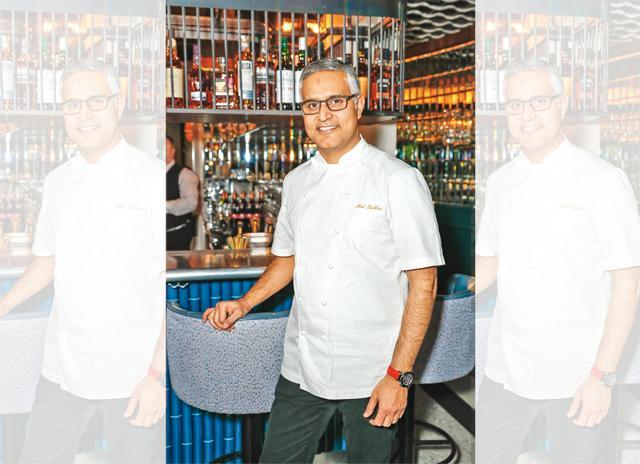
The Indian group of the moment (actually, scratch out the ‘Indian’; they are the most admired London group across cuisines) is JKS, a group run by the Sethi family, whose best-known member is Karam Sethi, a chef. JKS owns every trendy Indian restaurant you can think of: Gymkhana (closed for refurbishment after a fire), Hoppers, Brigadiers, Trishna, etc. It also has successful non-Indian restaurants: Bubbledogs, Kitchen Table (two stars), Sabor (one Michelin star) Lyle’s (also starred and a critic’s favourite) Bao, Berenjak, etc.
There are other Indian chefs in London whose restaurants are highly rated. I am a fan of Sriram Aylur of the Michelin-starred Quilon (Taj owned), Rohit Ghai of Kutir is well-regarded and the Nairs, formerly of the Leela chain, run the excellent Jamavar (chef: Surendra Mohan).
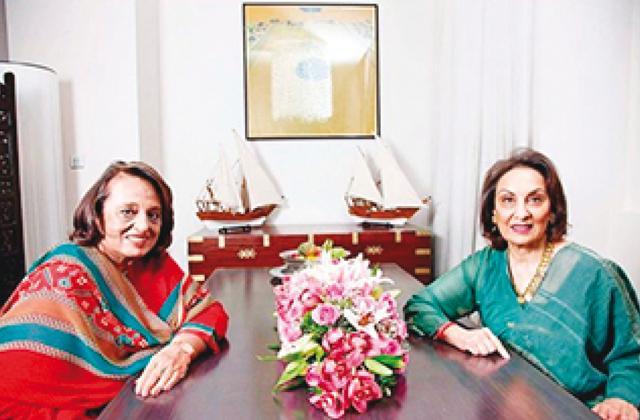
But I am not, on the whole, a fan of the London school of Indian food, which used to consist of playing down the spices and Frenchifying the presentation. It is hard to deny, though, that in recent years, standards have shot up and styles have changed.
As successful as Indian food is in England, most chefs have had very little luck in replicating that success in America. The exception is Floyd Cardoz who opened Tabla in the 1990s and made his brand of modern Indian food a firm favourite with New York foodies.
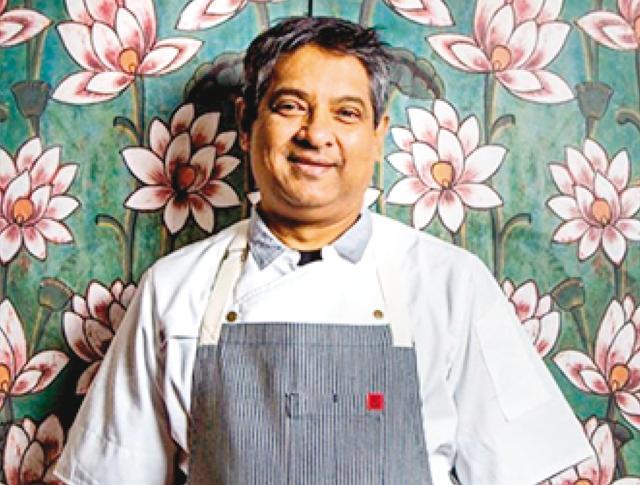
Tabla may have been before its time, but Floyd is even more respected now than he has ever been. Apart from his New York stature, he is also a partner in (and the guiding spirit behind) The Bombay Canteen and O Pedro, two of Mumbai’s best restaurants.
In the generation after Floyd, there are two Indian chefs in the US who have become role models. One is Srijith Gopinath of San Francisco’s Campton Place (Taj-owned), the only Indian chef in the world, apart from Gaggan, to have won two Michelin stars. Srijith’s food is heavily influenced by California and belongs to a category of its own. Nobody had ever done anything like it before though, of course, his dishes are now copied all over the world. (I should also acknowledge the role of Suvir Saran who introduced New Yorkers to high quality Indian food two decades ago.)
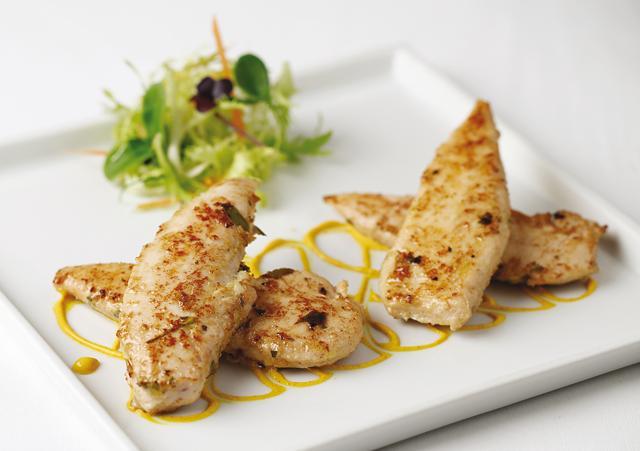
The best known Indian chef in the US is still Vikas Khanna who was chef at the Michelin-starred Junoon. Vikas was the first Indian chef to break out of ethnic stereotypes. He appeared on lists of The Hottest Chefs in America, cooked at the White House and became a celebrity in his own right. No Indian chef has ever reached that kind of fame and popularity with a mainstream audience. Now, he has turned film-maker and his movie, The Last Color, is a huge hit on the Festival Circuit – another first for an Indian chef.
I am sure there are many great Indian chefs cooking abroad who I have missed out. There are those who have just become famous like Asma Khan, the first British chef to be featured on Netflix’s Chef’s Table, who will, I suspect, soon become even more famous as a fighter for the rights of women and minorities than she is as a chef. (And she is a damn good chef.)
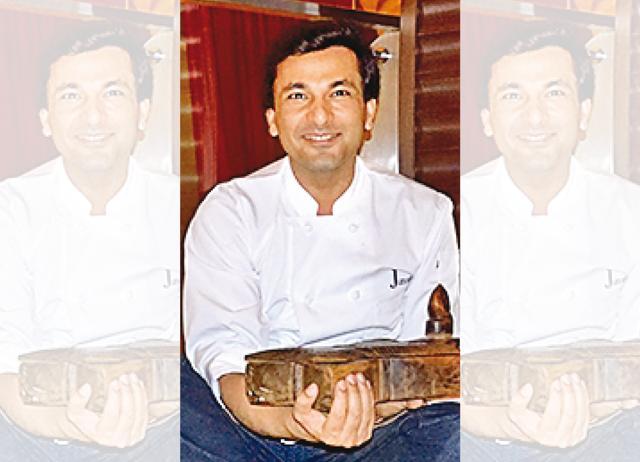
At the Punjab Grill in Washington DC, Jassi Bindra, a young chef I had never heard of before, wowed me so much that I was left in no doubt that this was the best fine-dining Indian restaurant on the East Coast of America. Bindra has the advantage of cooking in a beautiful restaurant (unlike Srijith who cooks in a room that looks like it is part of a diner) but even without those surroundings, his food would stand out.
In Dubai, Himanshu Saini, a Manish Mehrotra-protégé is doing great things at both Tresind, a modern Indian restaurant inspired by Indian Accent and at Tresind Studio, its Gaggan-inspired sibling. If Himanshu keeps at it, he has the potential to became Manish’s successor.
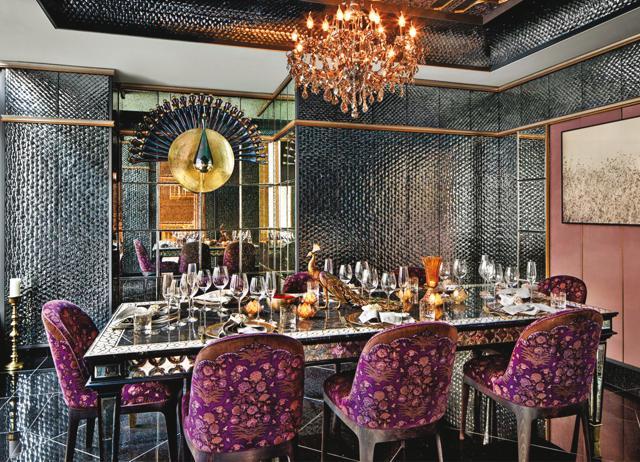
There are Michelin-starred Indian restaurants in the Far East (many also modelled on Gaggan or Indian Accent) but I have not been fortunate enough to visit very many of them. And of the ones I have been to, many were good but nothing really lingers in the memory.
It is the same with Europe. I am sure there are great Indian chefs cooking there but I have to say that I have not come across one. A bigger mystery is Australia, a paradise for food and wine with a market that is open to adventure. Given that there are so many Indians there, why has no great Indian chef emerged from Australia?
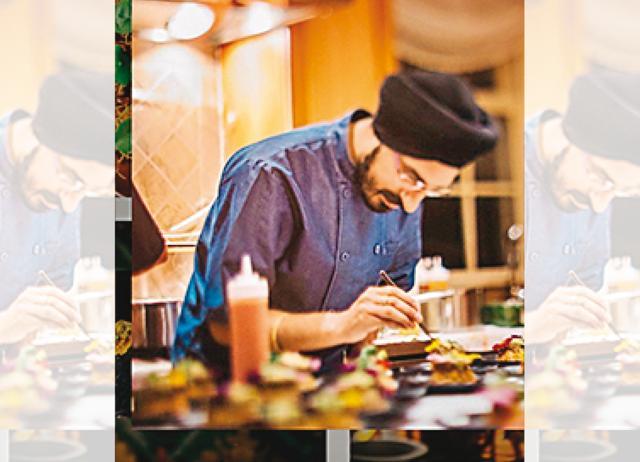
Perhaps they are all there and I just don’t know it. Perhaps they are not cooking Indian food. One of the best chefs in England is Sat Bains but he cooks European food so we don’t include him on our lists. In Bangkok, my favourite chef (outside of the Gaggan-Suhring superstar league) is Chalee Kader of 100 Mahaseth. (It is always my first meal in Bangkok.) But Chalee is only half Indian (his father is Tamil) and his food is either European (at Surface Kitchen) or Northern Thai (at 100) so he can’t make it on to lists of great Indian chefs. Garima Arora of the Michelin-starred Gaa is a major talent but her food can’t really be called Indian.
There will be newer talent emerging. I hope. But the chefs I really look forward to discovering are not chefs from India who now cook abroad but chefs from Indian communities in other countries. There must be great Malaysian-Indian and African-Indian chefs who create a cuisine that fuses the traditions of both regions. I would like to see how Brits who grew up in the UK recreate the mixed flavours of their childhoods.
It has happened with Chinese chefs. (Hundreds of them in the US; Andrew Wong in the UK.) And I guess it will happen with Indian chefs too. Each Indian community should be able to throw up its very own Gaggan.
After all, what is the point of a diaspora if we don’t have diaspora cuisines?
From HT Brunch, August 18, 2019



